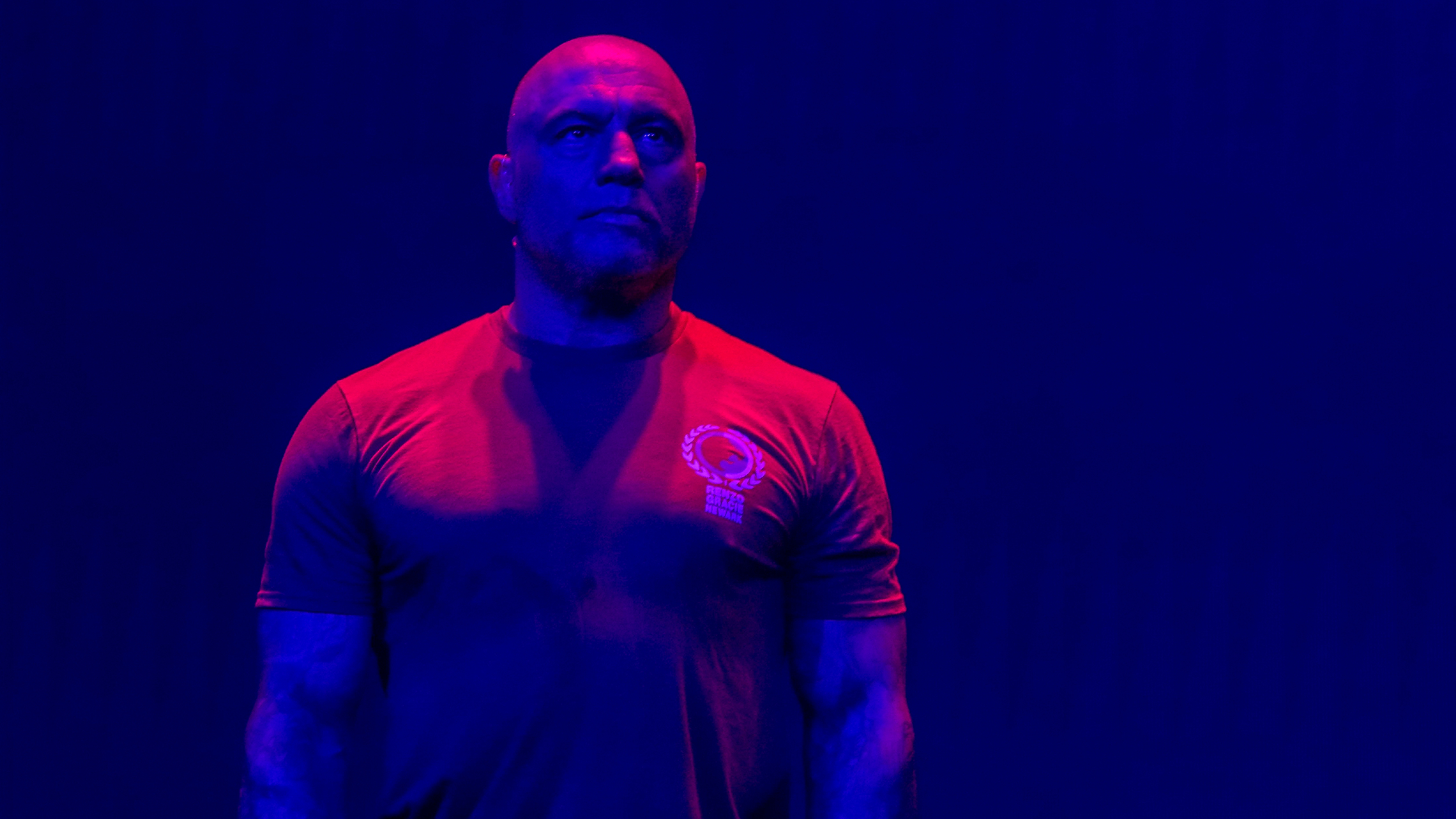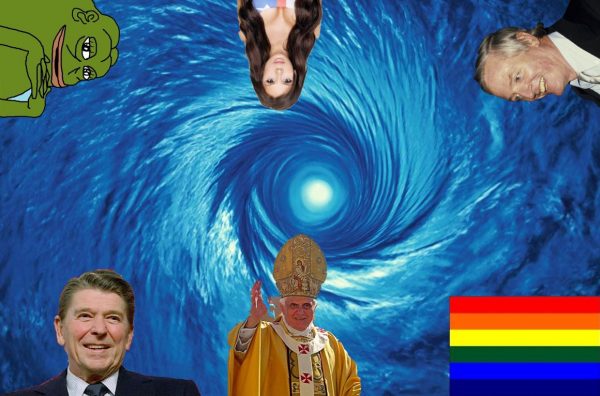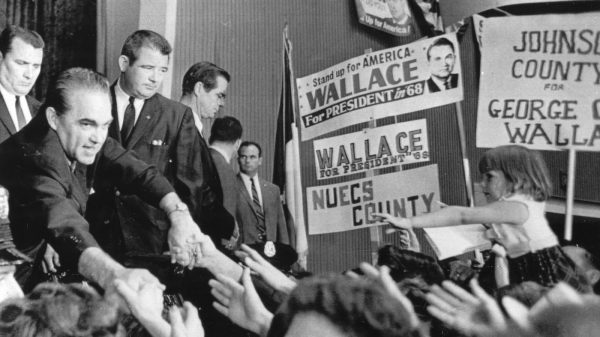The Power of the “N-Word”

What’s the Rogan controversy really about?
Joe Rogan’s enemies finally found something that sticks. It took a while. First a group of doctors called on Spotify, which hosts Rogan’s massively successful podcast, “to immediately establish a clear and public policy to moderate misinformation.” Then the Canadian dad-rocker Neil Young removed his music from Spotify in protest. But Rogan went on raising questions about the necessity and efficacy of COVID vaccines—until January 30, when a media organization called PatriotTakes published a supercut video of Rogan saying “the n-word.”
Now they’ve got him. “We’ve had conversations with Joe and his team about…his history of using some racially insensitive language,” wrote Spotify CEO Daniel Ek to his employees. “Following these discussions and his own reflections, he chose to remove a number of episodes from Spotify.” As of this writing, Rogan’s $100-million deal with the platform remains in place. But Ek is counterbalancing it with an investment of equal value in “audio content from historically marginalized groups.” Younger artists, having now heard of Neil Young, are following his lead and pulling music from Spotify.
The interesting thing about all this is that it has absolutely nothing to do with actual racism, and nobody involved really thinks it does. Attacks on Rogan for hosting COVID skeptics morphed seamlessly into the unrelated charge that he is incautious in his use of racial epithets. Rolling Stone called the whole affair an “ongoing debate over whether the streaming giant is responsible for monitoring misinformation and harmful content,” as if racism and COVID denialism fall equally and indistinguishably into the bucket of unacceptable language.
Rogan used the word in question on all sorts of occasions—when quoting others, for example, and when comparing the impact of different racial insults. The one thing he didn’t really use the word to do is degrade black people. Rogan’s detractors are not actually accusing him of using a slur as a slur. He’s just guilty of saying those two syllables out loud, and this offense compounds with his views on COVID to make him generally a Bad Guy.
The past two years have been too damaging to the reputation of “health experts” for a small consortium of them to carry real weight against a media giant like Rogan. For most people under 50, Neil Young’s most noteworthy moment in the public eye is the one we’re witnessing now. None of these adversaries is nearly formidable enough to vanquish Rogan, whom—unlike them—people actually like. But these earlier attacks made clear that yesterday’s tastemakers and today’s thought monitors find themselves threatened by Rogan’s success, and are willing to organize a coalition against him.
That is why PatriotTakes, which receives support from the Super PAC Meidas Touch, rummaged through the storehouse of possible grievances to find one that would play in today’s media environment. What they found was a shibboleth so forbidden that it could supercharge the previous accusations of misinformation. The point of pinning the word on Rogan was simply to brand him by association with it and so make him more vulnerable to other kinds of attack.
That is the spirit in which Rogan has received the message. “To most people, there is no context where a white person is ever allowed to say that word,” he said in his apology, “and I agree with that now.” This is an extreme stance which has only recently become popular.
“We found ‘nigger’ quoted in more than 9,500 opinions written since 2000 by jurists as varied as Sandra Day O’Connor, Sonia Sotomayor, Ruth Bader Ginsburg and Clarence Thomas,” wrote law professors Randall Kennedy and Eugene Volokh in the Washington Post. Now, though, to say the word while white under any circumstances—in a quotation, as an example, via hyperlink—is to invite high dudgeon and severe repercussions. “Don’t even say it, under any context,” said the musician India Arie.
The effect of this attitude is not to reduce the word’s power but to increase it. American English is full of neutered epithets from bygone hostilities, old insults that can now be tossed around in jest—words like “Guido” and “mick.” By contrast, the n-word has become a totemic utterance, a sound not to be pronounced by the unworthy for fear of thunder from heaven.
Ironically, Rogan observed this very phenomenon in one of the offending clips. “When you say ‘the n-word’ you’re like saying, it cannot be spake, it cannot be uttered, it is a sacred word. It is a magic word.” Here Rogan is displaying exactly the perspicuity and candor that have gotten him into trouble.
The issue is not vulgarity. In front of the right crowd, and directed at the right enemies, vulgarity is considered a virtue. Robert Deniro got a standing ovation at the 2018 Tony Awards just for saying “f***k Trump.” But those who seek control over thought and speech do not want the n-word to become sayable. They want it to become all-powerful. That way, they can use it to discredit and intimidate people over whom they otherwise have no control. People like Rogan.
And not just Rogan. “Spotify’s problems are bigger than Joe Rogan,” writes B. Steele at engadget, and Spotify’s solution is bigger than Rogan, too. In response to the whole affair, the platform released its “rules and approach to COVID-19.” These include adding “a content advisory to any podcast that includes a discussion about COVID-19,” with a link to pre-approved information on the subject.
The relation of “the n-word” to this new COVID policy is that of a v-8 engine to an old junker that wouldn’t start. The accusation of misinformation was unpersuasive, so the accusers forbad all argument against it by invoking the Sacred Word. Now everyone who wants to discuss epidemiology on Spotify will be monitored by regime overseers, because of a supposed transgression committed by one man on another subject entirely. To paraphrase another famous victim of social media censorship: they’re after you. Rogan’s just in the way.
The American Mind presents a range of perspectives. Views are writers’ own and do not necessarily represent those of The Claremont Institute.
The American Mind is a publication of the Claremont Institute, a non-profit 501(c)(3) organization, dedicated to restoring the principles of the American Founding to their rightful, preeminent authority in our national life. Interested in supporting our work? Gifts to the Claremont Institute are tax-deductible.
Yes, “Parties of No” can win.
It's the most persistent hate group in human history.
You have what it takes to turn life’s challenges into fuel for your future.
We call them Marxists, but they have rejected collectivism.
Retrieving our sacral humanity is the only defense against the cyborg vivarium.






